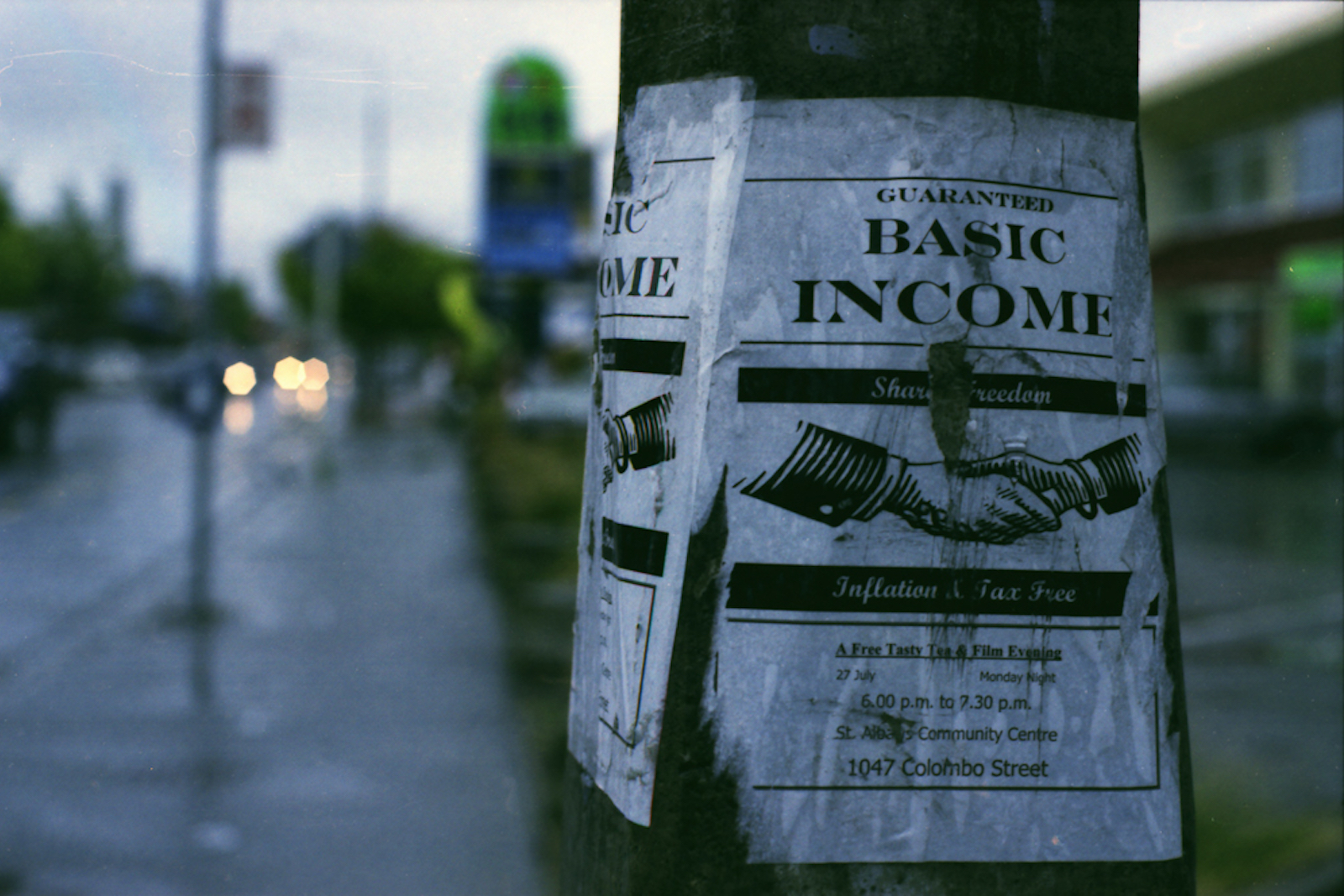
UBI: A Curse or a Blessing?
Among the many proposals that circulate in the current political market, Universal Basic Income, or UBI, is gathering momentum. The list of its supporters is rapidly expanding. It includes many widely recognized names in politics, business, public life, and the media. It is popular in Silicon Valley among the likes of Elon Musk, Mark Zuckerberg, and numerous start-up prodigies. UBI has the backing of the International Monetary Fund and other international agencies.
The idea of UBI has gained considerable currency with political parties. The conservatives support this idea because it promises to limit the bureaucracy required for administering numerous welfare programs. The liberals find this policy appealing because it resonates with their progressive agenda of reducing inequality. Many current Democratic presidential hopefuls include UBI in whole or in part in their campaign promises. Andrew Yang, an entrepreneur who runs as a Democrat, has made UBI the centerpiece of his presidential campaign. Libertarians, who generally oppose any form of the redistribution of wealth on ideological grounds, curiously support this program because it promises to reduce the size of the government. UBI has even got some traction in labor unions that have traditionally been against it as a policy that tends to lower wages of union members. Andy Stern, a long-time former president of the Service Employees International Union, has endorsed UBI in his recently co-authored book Raising the Floor: How a Universal Basic Income Can Renew Our Economy and Rebuild the American Dream.
UBI has already had several trial runs in Finland, Kenya, Chicago, and Stockton (CA). India’s current government is preparing to introduce UBI before the next general election. Italy also plans to start implementing a version of UBI—the so-called “citizens’ income”—this spring. Many other countries entertain similar ideas.
What is UBI? In a nutshell, it is periodic cash payments delivered to all or to very large segments of the population with no or minimal conditions. The proponents of UBI trace the idea to 1797 and Thomas Paine’s “ground rent.” They find aspects of UBI in Milton Freedman’s “negative income tax” and other proposals floated in the 1980s and 1990s.
The reasons for introducing UBI are probably as numerous as its endorsers. Some see it as a response to automation that threatens to make many jobs obsolete; others hail it as a way to promote social justice, end poverty, reduce inequality, and allow each individual to have a dignified life; still others welcome UBI as an opportunity that will allow individuals without meaningful jobs to pursue their passion and engage in ventures that they would forego without a prospect of secure income. The reasons for having UBI that its supporters proffer from are so numerous and diverse that they make one wonder about the viability of this proposal. If indeed, the reasons are so different and diverse, maybe they will be served better by different individual solutions, rather than the one-fits-all kind.
Although the purpose of UBI is to address specific concerns, it will certainly have wide-ranging economic effects. The proponents of UBI recognize this fact but are largely reticent to talk about the overall impact, focusing instead on specific benefits it will bring. However, since this plan is far-reaching and will affect the entire economy, the discussion of UBI should involve the broad context in which this program is supposed to be implemented.
Efficiency is one of the most important requirements of any economy. Several equilibriums that operate in the market place ensure that economy stays efficient. An inefficient economy is unsustainable and will inevitably collapse unless the imbalances are addressed. There is a number of ways in which UBI will disrupt equilibriums and will make our economy less efficient.
An economy is about creating values. Value creation is what defines our economic success or failure; it motivates and sustains our economic activities and gives life to our society. Money is the bloodline of our economy. Money and value creation are closely interrelated. Value attracts money that flows where the value is. This is one of the laws that operate in the market economy and a fundamental condition that makes such economy efficient. Redistribution violates this important law.
The proponents of UBI claim that this plan is not about redistribution of wealth. However, a close examination contradicts this claim. There is no need to get involved in this largely academic argument, but UBI has all the essential features of redistribution. It will require taxation to fund this program.
As a form of redistribution of wealth, UBI will divert the flow of money away from its natural path toward value. Such diversion will necessarily change the demand that results from the processes of self-organization that operate in a market economy and make it efficient. Changing the demand will also affect the supply. As a result, UBI will distort the overall economic performance. The economy will follow the direction that will take it away from the path of efficiency.
An economy is about consumption and production. Both play a very important role in the way the economy operates. Consumption and production are closely interrelated. Consumption requires production. There is no consumption without production. Consumption and production are part of one cycle and the balance of this cycle is very important for maintaining economic efficiency. The disruption of this relationship, the separation of consumption from production of values, will also affect supply and demand in a way that makes the economy less efficient.
A strong, efficient economy is in the interest of society as a whole, not just one specific group. An inefficient economy affects all segments of the population. In this sense, the disruption of essential economic balances will adversely affect everyone, including the recipients of UBI. However, this general effect is not the only or even the most important way in which UBI will have a negative effect on those whom UBI is supposed to benefit.
Human capacity to create is essential to human existence. It has its roots in the law of conservation that is the most ubiquitous law in our universe. In order to sustain themselves, humans, just like any other system, have to conserve their functions. In order to be conserved, functions have to stay active. The more active they are, the better they are conserved. Staying active requires stimulation—a trigger that stimulates function. Each function has its specific triggers that activate it. The number of triggers available to each function is limited. However, if functions combine with each other and create a new form of organization, they increase the number of triggers that can activate them. As a result, they will be more active. In other words, the creation of a new and more powerful form sustains and conserves our important functions.
This is the way that the law of conservation operates in nature and that is how it also operates in the social universe. By creating new and more powerful levels of organization, by evolving, systems sustain themselves. A system that does not evolve cannot sustain itself and begins to disintegrate.
Humans, both as individuals and society, also sustain themselves by creating new and more powerful levels and forms of organization and evolving. By creating new values we satisfy and conserve our most important function—our capacity to create. Such gratification is the source of our happiness.
Creation involves both individual efforts and social interactions. Both are integral aspects of the process of creation and both are equally essential for it. Society relies on individuals to create values, and individuals can create values only by participating in interactions that constitute social production. The exclusion of individuals from social production effectively stifles their capacity to create, evolve, sustain themselves, and be happy.
No UBI proposal makes any provisions for including individuals into social production. On the contrary, it will effectively exclude many individuals from this sphere, and thus from creating values. Moreover, UBI will institutionalize their exclusion from the creation of values. This policy makes exclusion permanent, more persistent and pervasive. As such, UBI will not solve problems it purports to solve; it will make them worse. It will deepen the problem of exclusion that poses a threat to our economy, social stability, and society as a whole.
UBI is not a way out. It will only create more problems that will compound those that we already face: economic inefficiency, inequality, social anomie, and malaise. Rather than resort to UBI, we should look for ways to use human capital more efficiently and involve all people into the creation of values.
Human capacity to produce and consume value sustains our economy and makes it grow. Human capital is the most important economic resource. It is different from all other forms of capital and resources. It does not depreciate when used; on the contrary, it appreciates. The fact that human capital appreciates when used is the main reason for the growth of our economy. Human capacity to create value is unlimited. It is capable of increasing our productivity many times over. It can make our economic growth exponential.
People are our most valuable economic resource. Squandering this resource makes our economy less efficient and, as a result, it generates less value. Conversely, if we use the human capacity to create–human capital–more efficiently, we will generate more value; and value will attract money. Therefore, the way to improve the human lot, the way to bring dignity and prosperity to all people is to engage them in the process of creating values. Squandering human capital, using it inefficiently limits this important resource. When this resource does not appreciate, does not grow, we begin to exhaust it. The exhaustion of human capital is what makes economies stall and decline.
Our current practice, both economic and social, is the main obstacle to using human capital efficiently. The domination of hierarchical interactions, or hierarchies, makes this practice inadequate. This domination inhibits creativity and stalls progress.
The process of creation involves both hierarchical and non-hierarchical interactions. By combining and integrating views and ideas, non-hierarchical interactions among equals create new and more powerful levels and forms of organization that give rise to new ideas, products, approaches, theories, etc.—in a word, to new values. The emergence of new and more powerful levels of organization signals the presence of a hierarchical structure. These new levels have to be conserved and that is the principal function of hierarchical interactions. They conserve and optimize what non-hierarchical interactions produce.
These two types of interactions—hierarchical and non-hierarchical—complement each other. Their harmonious complementary relationship is an essential condition that ensures the efficiency of the process of creation. The two must be in balance. Unfortunately, our current economic practice does not observe this condition. The domination of hierarchies in it stifles creativity, makes our economy less efficient, and impedes the progress of our society. We need to change this practice. Maintaining the balance between hierarchical and non-hierarchical interactions should be one of the main principles of the new practice.
Our society faces some real problems. The displacement of human labor as a result of the accelerated pace of automation, the disappearance of whole categories of employment, the social anomie and malaise produced by the growing inequality are very serious problems that need to be addressed. UBI is not the right way to address them. It will not solve these problems but will only make them worse.
The real and humane solution is to include all people into the process of creating new values, to use to the fullest extent possible the capacity of every individual to create and use this capacity in the most efficient way possible. Rather than violate economic laws that operate in a self-organized market economy, this solution will reinforce these laws. It will affirm the dignity of every human being—his or her capacity to create values—and will open for every individual the path to a dignified, fulfilling, rewarding, and ultimately happy life.

